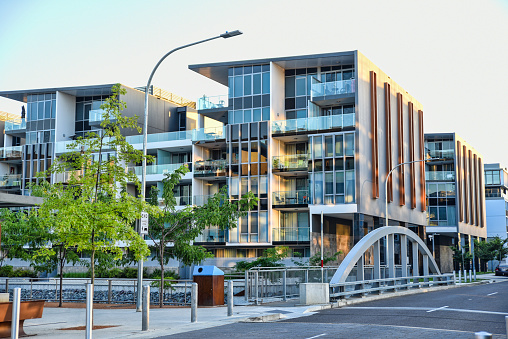Condominiums can offer the benefits of home ownership without many of the headaches associated with owning a house. You’ll never have to worry about exterior maintenance like yard work, driveway repairs or cleaning gutters. However, condo ownership can come with its own set of challenges, such as rising association fees, dealing with a condo association and living in close proximity to other condo owners.
You can make the most of condo living by understanding your rights, managing your expectations, and knowing how to approach potential problems. Here are some rules to live by in your condo.
Understand Your Rights as a Condo Owner
When you purchase a condo you join the membership and consent to the rules of your condo association. Unlike owning your own home where you make your own rules, association rules can be limiting. For example, your association may restrict the number of pets you or the types of signs, flags, plantings or outdoor decorations you can have at your home. Here’s how to make sure you understand your rights.
Read your ownership agreement. Most condo owners’ rights are governed by state laws, which vary from state to state. But your particular condo association likely has its own specific rules that you must follow. Read them thoroughly so you know what is expected.
Right to protest. In most states, condo owners have the right to protest particularly onerous rules or apply to your condo board for relief from a particular rule.
Voting rights. As an owner, you have the right to vote on changes to your condo association’s rules and regulations, as well as to vote for new board members. If you think a particular rule is unfair or even illegal, you can try to have it changed, following the steps prescribed in your condo association agreement. For example, you may be required to gather signatures from a certain number of owners to bring the matter to a vote.
Deal Appropriately With Neighbors
Let’s face it: When many people live in close proximity, there are bound to be problems. If you have a condo neighbor who is too loud, smokes in common areas, or owns pets that are a nuisance, here are some steps that can help you successfully resolve issues like these.
Go to the neighbor first. Rather than talking behind your neighbor’s back or going straight to the condo board, start by talking to the neighbor in question. They may not even realize what’s bothering you, so try not to attack them straightaway. Instead, be informative and friendly. Most people want to live peacefully with their neighbors and hopefully you can work out a resolution together.
Overlook minor occurrences. If the problem lessens, or happens only on rare occasions—such as loud noise due to a holiday party—try your best to overlook it. Living happily with close neighbors requires some flexibility and forgiveness.
Give a second chance. If the problem persists even after your conversation with your neighbor, consider offering your neighbor one more chance to correct it before you take further action. Explain why the issue is a problem for you and how it violates condo association rules. Try to help the neighbor figure out a way to solve the problem if necessary.
Go to the board. If talking directly with your neighbor has not solved the problem, it is within your rights to file a formal complaint with the homeowner’s association board. Make sure you follow proper protocol and provide documentation if needed. Once you’ve made your complaint, allow the board time to follow up with it through their established protocol.
Deal With an Ineffective Condo Association
If your condo buildings and grounds aren’t being maintained properly or the association otherwise doesn’t seem to be doing its job, you have the right to take action in order to maintain your investment.
Talk to the manager. Many condo associations hire managers or management companies to handle everyday tasks. Talk to someone in management to find out whether the problem is a management issue or a board issue. If the managers are notified about the problem, they may correct it.
Follow up with the board. If management does not resolve the problem, file a complaint with the board of the association and give them time to respond.
File for an Alternative Dispute Resolution (ADR). If you feel that the board is neglecting your request and its duties, you may want to pursue an ADR, which refers to a number of ways of resolving disputes without a trial, such as mediation or arbitration. Rather than going to court, you and the condo representative would sit down with a mediator, for instance, and work to come to an agreement. In most states, a condo owners’ association is required by law to provide an ADR hearing when requested by an owner.
Take legal action. If the issue remains unresolved, you may want to consult an attorney or someone who can advise you about next steps. If your condo association is not following state regulations, you may consider contacting governing authorities.
Be a Good Neighbor
If you want to limit problems with your neighbors and live peacefully in your condo community, do your best to be a good neighbor. For instance:
Consider how your behaviors affect others. Avoid playing loud music if it might disturb your neighbors, and keep the exterior of your home free of clutter, debris, and out-of-season holiday decorations. If you’re planning to have company or a party that may lead to extra noise or traffic, let your neighbors know in advance.
Keep a close eye on pets and children. Rather than allowing pets or small children to roam freely, watch them carefully—for their own safety and your neighbors’ comfort.
Be understanding of neighbors. Just as you hope for patience and understanding from your neighbors, try to be flexible and understanding when your neighbors have company.
Know When It’s Time to Sell
Although condo living can be perfect for some homeowners, it doesn’t work for everyone, or forever. Rather than growing discontented, look for the signs that it may be time to sell your condo:
You’re feeling cramped. One opportunity condo owners don’t have is the ability to add on to their homes. If your household simply needs more space, you may want to sell your condo and move to a traditional single-family home.
The community isn’t working for you. If you no longer want to live in close proximity to others, or if you just can’t get along with your neighbors, your condo may not be a positive living situation for you anymore. Maybe you just need to be closer to your job or your elderly parents. Whatever the reason, if your condo community is no longer a fit, it’s probably time to get out.
Remodeling isn’t worth the investment. Maybe you’re pining for a new kitchen or bathroom—but your current condo won’t offer a positive return on your remodeling investment. Before dropping more money into your condo, research the current value and recent sale prices of other units. If it looks like you won’t be able to earn back your remodeling investment by selling your condo, it’s probably a better idea to sell it now and buy a different home with the kitchen you want.
READ MORE: How Moving Affects Your Auto and Home Insurance






